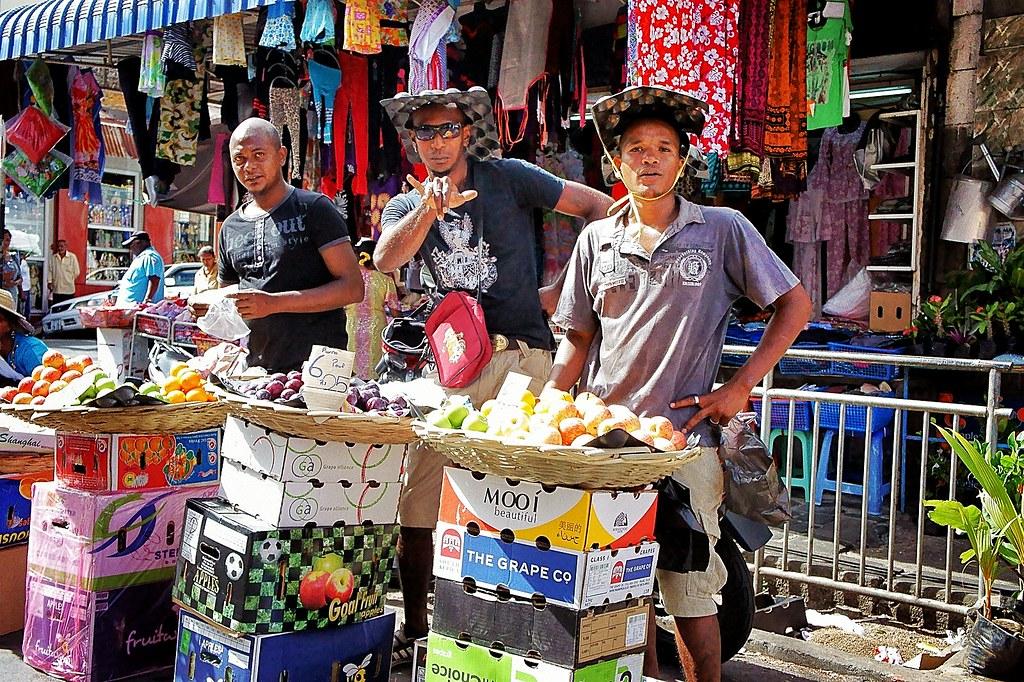The Marginalization of the Creole Community in Mauritius:
Challenges and a Path Forward
The Creole community in Mauritius has long been an integral part of the island’s social fabric, yet it remains one of the most marginalised groups in the country. Despite their cultural contributions and deep-rooted presence in Mauritian history, Creoles continue to face systemic challenges that perpetuate a cycle of poverty, social exclusion, and criminality. According to the 2011 Census, the Creole community represents approximately 27% of the population but still struggles with socio-economic disparities compared to other groups in Mauritius.
Understanding the Problems
The marginalisation of the Creole community stems from a combination of historical, economic, and social factors. Over the years, the lack of targeted support and inclusion has resulted in the following challenges:
1. Educational Inequality
Creole communities face considerable barriers to education, with many students dropping out of school prematurely. According to the Ministry of Education in Mauritius, school dropout rates in rural Creole communities are significantly higher compared to urban areas. Data from 2020 shows that in regions like Roche Bois, the dropout rate is as high as 12%, compared to the national average of 4%. This lack of access to quality education perpetuates poverty as the youth are ill-equipped for the modern job market.
2. Poverty and Unemployment
Poverty levels within the Creole community remain disproportionately high. According to a 2019 report by Statistics Mauritius, the unemployment rate among Creoles in rural areas stands at 13%, compared to the national average of 7.1%. This is exacerbated by the limited economic opportunities in rural areas, where many Creoles reside. Many families struggle to meet their basic needs without access to stable jobs, leading to economic stagnation within the community.
3. Housing and Living Conditions
In terms of housing, Creole families often live in substandard conditions, particularly in rural areas where infrastructure is lacking. According to the Housing and Population Census (2021), approximately 30% of Creole households live in informal or overcrowded settlements without access to clean water or adequate sanitation. The average household size in some of these areas exceeds five individuals per room, further indicating the severity of the issue.
4. Drugs, Crime, and Social Breakdown
Drug abuse and related criminal activities have disproportionately affected the Creole community, with young people being the most vulnerable. The Mauritian Anti-Drug and Smuggling Unit (ADSU) reports that nearly 70% of drug-related arrests in 2022 involved individuals from Creole communities. This statistic underscores the severity of the drug problem, which is often fueled by unemployment and a lack of social services in rural areas.
Moreover, in 2021, Mauritius had one of the highest per capita rates of drug use in the Indian Ocean region, with a large percentage of those affected coming from marginalised Creole communities. These issues are further compounded by the stigma attached to Creole individuals, who are often stereotyped as criminals.
5. Health Inequality
Health outcomes are equally concerning, with Creole communities in rural regions having limited access to healthcare services. According to the Mauritian Ministry of Health, approximately 25% of Creoles in rural areas lack access to adequate medical facilities, compared to only 8% in urban regions. As a result, many individuals do not receive timely treatment for conditions such as addiction, mental health issues, or even basic medical needs, further perpetuating the cycle of poverty and exclusion.
The Role of Faith and a Call for Unity
It’s important to note that most of the Creole community in Mauritius adheres to Christianity, with Roman Catholicism as the predominant faith, accounting for a large portion of their religious identity. Other Christian denominations, such as Pentecostals, Seventh-day Adventists, Anglicans, and Presbyterians, are also present but in smaller numbers. This strong connection to faith means that the challenges the Creole community faces are not just social issues—they are deeply intertwined with the fabric of the Church itself.
When we speak of the struggles of the Creole community, we must acknowledge that these issues affect the very body of Christ in Mauritius. As the Bible teaches, believers are interconnected as one body (1 Corinthians 12:26); the whole body suffers when one part suffers. The marginalisation, poverty, and social breakdown happening within the Creole community cannot be separated from the Church. Regardless of denomination, the Church must act and bring spiritual, social, and economic healing.
This reality highlights an urgent need for unity among Christian denominations and communities to fight these systemic issues. Whether Roman Catholic, Anglican, Pentecostal, or other Christian groups, all must come together in collective action. Faith without works is dead (James 2:26), and the Church must be the guiding force in turning the tide of social decay by tackling these issues head-on.
A Comprehensive Response: The ICCCM and AGCCCI Proposal
To reverse the damage that has been done and offer a sustainable path forward for the Creole community, the International Christian Chamber of Commerce and Industry Mauritius (ICCCM) and the African Global Christian Chamber of Commerce and Industry (AGCCCI) propose a multi-faceted project. This initiative aims to provide long-term support and opportunities for the Creole community to thrive.
1. Community Support and Empowerment
Education and Skills Development: To combat dropout rates and lack of vocational training, ICCCM and AGCCCI aim to establish community learning centres. Education statistics show a gap in STEM (Science, Technology, Engineering, Mathematics) subjects in rural schools, so the project will prioritise these areas and vocational training to meet future job market needs. Data from the World Bank indicates that enhancing vocational training in underprivileged areas can boost employment rates by up to 20% over a 5-year period.
Education is at the heart of community empowerment, and the ICCCM/AGCCCI proposal prioritises the establishment of Community Learning Centers in critical rural areas. These centres will offer a range of educational services, including:
- Primary and secondary tutoring programs to address the high dropout rates among Creole youth. The programs will help students catch up on missed learning, particularly in underfunded schools, ensuring they can complete their education.
- Vocational and Technical Training tailored to meet the demands of the job market. Courses will focus on developing skills in information technology, agriculture, trades (carpentry, plumbing, electrical work), and entrepreneurship. This equips Creole youth and adults alike with the skills to find stable employment or start businesses.
- Scholarship Opportunities: The centres will work with local universities and private institutions to offer scholarships, ensuring that young Creoles can access higher education and specialised professional training. The aim is to reduce educational inequality and give the youth a path to upward social mobility.
Improving Housing and Infrastructure: According to the 2021 Housing and Population Census, over 40% of Creole families live in informal settlements without access to basic infrastructure. By partnering with housing authorities and NGOs, ICCCM/AGCCCI aim to reduce this number by 10% within the next five years, providing affordable housing options and improving access to essential utilities like water and sanitation.
The proposal tackles one of the most pressing issues for the Creole community: substandard housing. Many Creole families live in overcrowded or informal settlements lacking basic amenities like water, sanitation, and electricity. ICCCM/AGCCCI plans to:
- Partner with NGOs and government programs to provide affordable housing solutions. This will involve constructing new housing units in Creole-dominant areas and improving existing infrastructure to meet basic living standards.
- Work with local government bodies to develop essential services such as waste management, clean water, and electricity supply. These improvements will directly enhance the quality of life for Creole families, making their communities more livable and sustainable.
Healthcare Services:
Healthcare access in Creole communities is inadequate, particularly for those struggling with addiction or mental health issues. The proposal includes:
- Community Health Clinics: These clinics will offer primary healthcare services, focusing on preventive care, addiction recovery programs, and mental health counselling. They will also work closely with local hospitals to ensure that individuals requiring specialised care are referred to the appropriate facilities.
- Mobile Health Units: For more remote areas where permanent health clinics are difficult to establish, mobile health units will travel to provide health screenings, vaccinations, and addiction recovery support to those in need. By bringing healthcare directly to the community, this initiative will help prevent the spread of illness and reduce the number of untreated health conditions.
2. Economic Empowerment through Job Creation
Entrepreneurship Incubation: Data from the Global Entrepreneurship Monitor (GEM) Mauritius Report (2022) indicates that while Mauritius has a thriving entrepreneurial culture, rural Creole communities often lack the financial resources and support systems to start businesses. Through this project, ICCCM/AGCCCI plans to increase entrepreneurial activity by providing micro-financing and business training to 200 aspiring Creole entrepreneurs annually. GEM data shows that such initiatives can increase business survival rates by up to 30% over three years.
To combat the high unemployment rates in the Creole community, ICCCM/AGCCCI will establish an Entrepreneurship Incubation Program designed to foster business creation and growth in underserved areas. Key features of this program include:
- Business Training and Mentorship: Aspiring entrepreneurs from the Creole community will receive comprehensive business training, including lessons on financial literacy, business management, marketing, and scaling their ventures. The program will provide access to successful business owners and mentors who will guide the entrepreneurial journey.
- Micro-Financing and Grants: Many Creoles lack the financial resources to start businesses. ICCCM/AGCCCI will work with financial institutions to offer low-interest micro-loans and small business grants. These funds will enable entrepreneurs to launch businesses in critical sectors such as agriculture, fishing, hospitality, and retail—all of which have growth potential in rural Mauritius.
- Access to Markets: In addition to financing, entrepreneurs will be given access to local and regional markets through partnerships with businesses and government bodies. The program aims to build trade networks, allowing Creole entrepreneurs to sell their goods and services locally and internationally.
Building Strategic Partnerships: By partnering with industries like agriculture, fishing, and tourism, the initiative will target a 15% increase in employment within these sectors in rural Creole communities by 2028. The Mauritian Ministry of Labour suggests that job creation in these sectors could reduce rural unemployment by at least 5% over the next five years, particularly if accompanied by skill development programs.
In regions where entrepreneurship may not be feasible for everyone, ICCCM/AGCCCI will work with local and international businesses to create jobs in tourism, agriculture, and small-scale manufacturing. These partnerships will:
- Prioritise hiring individuals from the Creole community.
- Offer on-the-job training programs to equip workers with the skills necessary to succeed in these sectors.
- Establish employment hubs where businesses can collaborate with the local workforce, providing stable job opportunities close to home.
3. Leadership Development and Moral Guidance
Youth Mentorship and Leadership Programs: To foster a new generation of leaders, the project will engage church leaders and community elders in mentoring youth. These mentorship programs will focus on life skills, spiritual growth, and moral leadership, steering young people away from crime and becoming active, responsible citizens.
ICCCM/AGCCCI will help develop mentorship programs to foster spiritual and professional growth. These programs will:
- Pair youth with community and church leaders who can mentor them in life skills and Christian values, helping them build a solid moral foundation and avoid the pitfalls of crime and addiction.
- Leadership Development: Training programs will equip young people with the skills needed to become community leaders, teaching them how to advocate for themselves, engage in civic activities, and serve as positive role models for others.
- Spiritual Guidance: Partnering with local churches, the program will offer spiritual counselling and religious instruction, emphasising the importance of faith and Christian ethics in all areas of life. This will provide a moral compass that can guide individuals as they navigate the challenges of daily life.
Community Leadership Training: A major goal of the project is to empower local leaders who can advocate for their community’s needs. Leadership training will equip individuals with the skills necessary to mobilise their communities and collaborate with government and business leaders.
4. Rehabilitation and Social Reintegration
Rehabilitation Services: For those who have already been caught in the web of drug addiction and crime, rehabilitation centres will be established within the community. These centres will offer a holistic approach to recovery, addressing not only the physical aspect of addiction but also the emotional and spiritual dimensions. These centres will:
- Provide comprehensive addiction treatment programs, including medical detox, therapy, and aftercare services, to help individuals recover and reintegrate into society.
- Offer job placement programs for those who have completed rehabilitation, helping them to find stable employment and rebuild their lives.
Job Placement for Ex-Convicts and Recovering Addicts: To reduce recidivism and give people a second chance, the project will work with businesses to create job opportunities for those who have completed rehabilitation. This reintegration into society is essential for breaking the cycle of crime and poverty.
To further address the issue of recidivism, the proposal includes reintegration programs for ex-convicts. These programs will provide:
- Vocational training and employment opportunities tailored to the needs of individuals coming out of the prison system. The program aims to reduce the cycle of crime and poverty by equipping them with marketable skills and stable jobs.
5. Advocacy and Policy Change
Influencing Government Policy: The ICCCM/AGCCCI proposal includes an advocacy component. It aims to work with the government to develop policies targeting marginalised communities. Using real-time poverty and employment data from Statistics Mauritius, the initiative seeks to influence policies that will reduce the unemployment rate among rural Creoles from 13% to 8% over the next decade.
While direct action on the ground is crucial, long-term change requires policy shifts. ICCCM and AGCCCI will work as advocates for the Creole community to:
- Lobby the government to create more inclusive policies that address the systemic inequalities affecting Creoles, particularly in education, housing, healthcare, and employment.
- Collaborate with other civil society organisations to push for economic and social reforms that ensure that marginalised groups, including the Creole community, are no longer left behind.
Public Awareness Campaigns:
Finally, the proposal includes public awareness campaigns to reduce the stigma surrounding the Creole community. These campaigns will:
- Highlight the contributions of the Creole people to Mauritian society, fostering a sense of pride and cultural identity within the community.
- Encourage the broader Mauritian society to recognise the importance of inclusivity and diversity, reducing prejudices and promoting unity across ethnic and social lines.
Conclusion: A Vision for Restoration
The challenges the Creole community faces are deeply rooted in historical marginalisation and systemic inequality. However, the ICCCM and AGCCCI’s proposal presents a comprehensive, faith-based approach that combines education, economic empowerment, moral leadership, and advocacy to bring about lasting change. This project aims to restore dignity, opportunity, and hope to one of Mauritius’s most vulnerable populations by addressing the social and spiritual dimensions of the Creole community’s struggles.
The Church cannot remain passive; it must unify across denominations, as the problems of the Creole community are the problems of the Church itself. The vision for a restored Creole community in Mauritius can become a reality through sustained efforts, partnership with the government, and collective will.



